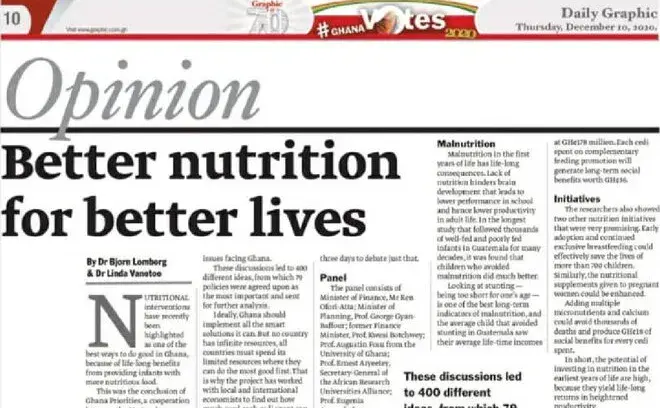Better nutrition for better lives
Published by

The panel’s ranking was based on the research conducted by Richmond Aryeetey from the University of Ghana, Paul Kwame Nkegbe and Haruna Issahaku from the University for Development Studies, and Brad Wong from Copenhagen Consensus who analysed ways to reduce childhood malnutrition. They showed that investing in child nutrition is one of the most cost-effective endeavours Ghana can pursue.
How is that possible? Malnutrition in the first years of life has life-long consequences. Lack of nutrition hinders brain development that leads to lower performance in school and hence lower productivity in adult life. In the longest study that followed thousands of well-fed and poorly fed infants in Guatemala for many decades, it was found that children who avoided malnutrition did much better. Looking at stunting — being too short for one’s age — is one of the best long-term indicators of malnutrition, and the average child that avoided stunting in Guatemala saw their average life-time incomes rise by 60 percent.
Read the full op-ed published in Ghana’s newspaper of record The Daily Graphic.

